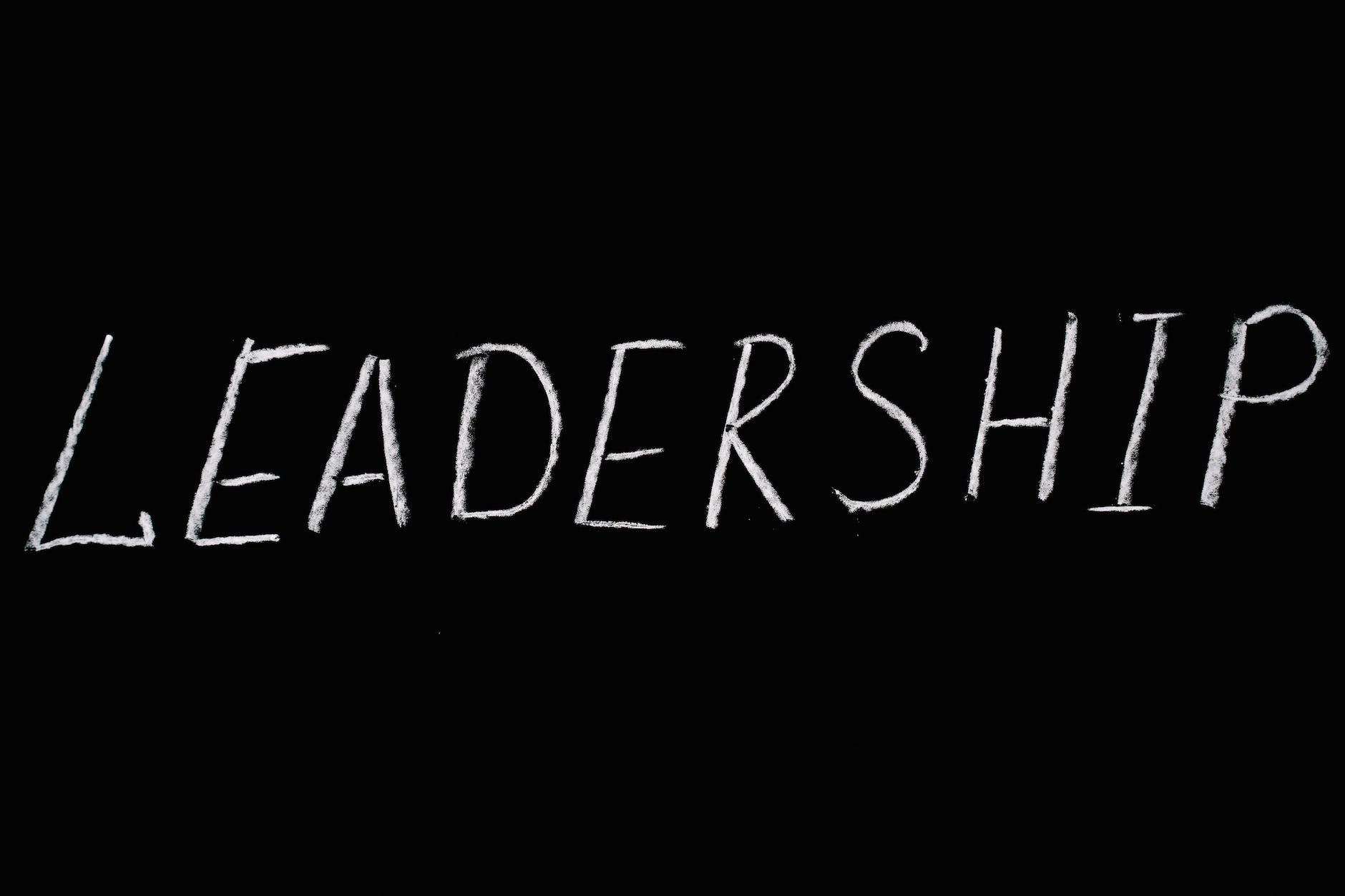
I recently spoke to the Philippine Canadian Nurses Association in Calgary.
Florence Nightingale’s 203rd birthday was celebrated on 12-May-2023. Florence was an English social reformer, statistician, and founder of modern nursing. Nightingale focused on #personalizedpatientcare and #goodhygiene, which increased chances of recovery. Florence was also a #statistician and collected data. During the Crimean war she used the numbers she collected to introduce reform to the care being provided. Florence Nightingale was a leader.
Let’s delve into leadership a bit more.
Who is a Leader?

Though there is no universally accepted definition for leader or leadership, we do tend to know both when we see them.
Everyone is a leader. Sometimes, in some situations you are a leader. We know not everyone is a good leader. Some people are better leaders than others. We also know that leadership can be learned. There are numerous competencies each of us can develop if we choose. Whether you are a formal or informal leader, leadership competencies and skills are worth learning.
Nurses are leaders to many in numerous ways. Patients and families look to nurses as leaders. We lead each other – no one nurse can know everything. Nurses have insights into how things could be done better – and it behooves each of us to share those insights.
What is a #Leader?
Oxford online dictionary defines leader as “the person who leads or commands a group, organization, or country”. I immediately feel the hairs on the back of my neck go up when I hear the word “commands” – but I guess it might fit in some situations. Commanding might be important in military situations, or large-scale incidences such as 9/11 the leader might be the commander of the situation organizing and issuing order appropriately. In most of our daily situation commanding is not necessary.
What is #Leadership?

Again, from the Oxford online dictionary come 3 definitions:
“the action of leading a group of people or an organization.”
“the state or position of being a leader.”
“the leaders of an organization, country, etc.”
Where Do We Find and Interact with Leaders?
- The coach and the captain of your sports team are both considered leaders.
- Your teachers and professors are often considered leaders.
- The king, prime minister, premier, mayor – they are considered leaders, but…
- On a trip you might have a tour guide as your leader. This can be especially important if you don’t speak the local language.
- Your boss, supervisor, manager.
- Within the family – Parents and family members.
What makes a person a strong or good leader? Think about this, not just while reading, but afterwards. Pay attention in a variety of situations: watch people, movies, tv shows and pick out the leaders, both formal and informal. Notice the leadership qualities displayed by others in different settings – which qualities appeal to you and which make you cringe. When you see examples of bad leadership or bad leader behaviours, learn from them. You can learn from what is done wrong just as you can learn from good practices.
Are you, or have you been in a #formalleadership role? Did you receive any specific guidance, education, or support when you took on the role? On a #personaldevelopment level have you sought out information about being a leader, about leadership, or management?
#Nurses and anyone in #healthcare are probably chuckling right now thinking “when does she think we would have time to do that?” I know there is a nursing shortage – it isn’t new, but it might be worse than we have experienced before. Over the last few years, you have been stretched to the breaking point so taking courses has not been high on your to do list if it ever was on your list at all.

But there are ways to develop your leadership skills without significantly adding to your workload. I will cover how you can do that a bit later.
Though management and leadership are different, there are many significant similarities. And we might even want to consider why leadership even matters. Maybe we should just forget about the people part and focus on the business and the bottom line.
Let’s delve into this a bit more.
When Does Leadership Occur?
Leadership is happening all around us all the time.
Leadership occurs anytime anyone influences someone. Leadership happens in our interactions with others – in our #relationships.
We often don’t want to be put into a leadership role. Some people don’t believe they are leaders. As an assistant manager of an ICU, I sometimes asked the staff on the unit what kind of leader they were. Most often the response was “Oh, I’m not a leader.” Yet, I continue to believe everyone is a leader, even if they do not recognize it is themselves.
Whether you are a formal leader, or an informal leader you can improve your #leadershipskills and abilities. No matter what type of leader you might consider yourself i.e., some of the traditional types being transformational, transactional, delegative, participative, authoritative, or servant there is always something more to learn. I would like to introduce 2 types of leadership that I think are worthy of your attention: 1 – #EmotionalIntelligenceLeadership and 2 – #ComplexityLeadership. However, it doesn’t matter if you put a label on your leadership style or not, you have leadership strengths and abilities.
Why Do We Need Leaders and Leadership?
Leaders provide #guidance, direction, #support, #inspiration, and #motivation to achieve desired goals in business and personally.

Think about the leaders you have had? Which leaders stand out? Were they good leaders or poor leaders? What reason or reasons brought you to that conclusion? Some reasons could be they were arrogant, not a people person, didn’t listen to the ideas of others, didn’t keep promises, didn’t explain why changes were made… OR they were kind, honest, took time to get to know you, were empathetic, were humble, listened to the ideas of the team, or just seemed to understand where you are coming from.
Complexity Leadership is ideal for nurses and nursing because it is a process involving complex adaptive systems and highly interactive people (#complexadaptivesystems are the roots of all healthcare delivery). Some of the concepts of Complexity Leadership include it being highly interactive, #collaborative, creative, #innovative, and #adaptable, often with outcomes that are #emergent – unplanned and nonlinear. So many of these words seem to relate to nurses and nursing – interactive, collaborative, you definitely need to be creative, innovative, and adaptable with shortages of people and supplies, technology and machinery that doesn’t work as stated.
Nursing, leadership, and complexity theory have overlapping characteristics when placed in Venn Diagram thus creating a model for Complexity Leadership in Nursing. I presented this in my dissertation when I examined the education and development of leadership in nursing programs. (A Case Study in Complexity Leadership in Nursing: Preparing Baccalaureate Nursing Students).
All three, nursing, leadership, and complexity theory involve relationships, the ability to manage conflicts and ambiguity, and require excellent communication skills. All three need to deal with complex dilemmas, and ideally will challenge the status quo and processes. Leaders enable others to act – and if you look you know these all apply to nurses. We know nurses and leaders will model the way and inspire a shared vision. Complexity theory is non-linear and if you think about it, so is nursing and leadership. All three are #dynamic – ever evolving. Just like each of us.
Sometimes we are not aware of the interconnectivity or have knowledge of the other parts of a system or situation. Situations are often novel, and changes are never ending.
Think About the Butterfly Effect

A butterfly flapping its wings can cause a tornado weeks later, on the other side of the world is how the #butterflyeffect is often described. What does this have to do with leadership? Small actions can lead to large results. Conversely, large actions sometimes lead to small results. At other times it is repeated small actions that lead to change. I was told to brush my teeth to prevent cavities, – well I did that once, but I still got cavities. I also exercised one day but I am still overweight. You don’t necessarily need to make big changes to get important results. A small thing like listening to what an employee has to say about a new work schedule could provide important insight into what else might be needed, or a small tweak that will make the new schedule work better. What would happen if management listened to employees more often?
What is Universal or Divine Intelligence and How Does it Have Anything to do with Leadership or Nursing?
#UniversalIntelligence is the intrinsic or underlying tendency for things to self-organize and co-evolve into ever more complex, intricately interwoven and mutually compatible forms.

Universal or #DivineIntelligence does not belong to any religious ideology. Its focus is personal transformation and spiritual advancement, again spiritual is not connected with any religious ideology, it is an awareness of the unlimited, creative potential within you, and it infers a deep connection between our minds and the fundamental makeup of the Universe.
Keep these in mind. How do nurses working together, and side-by-side self-organize or evolve over time? How do our actions and ideas create something new and improved as we manage our work and care for our patients? We often don’t know where our ideas come from, what caused us to have a certain idea or thought, we just know there is a better way, and we move to implement something new. Never underestimate your intuition.
Emotionally Intelligent Leadership
Emotional Intelligence involves: #Self-awareness, #Self-regulation, #Empathy, #Motivation, and #Social Skills. Can a leader truly be a leader without these? Without these someone can certainly be in a leadership role. But to be a good leader these things are imperative. I believe we all need to have these qualities. They are not necessarily easy to develop, self-awareness requires work and attention, from there self-regulation can develop. Taking time to become Emotionally Intelligent will benefit you in all situations. I think learning about Emotional Intelligence needs to be incorporated in the nursing curriculum. As a former assistant professor of nursing the first question that comes to mind is “and where are we going to squeeze that in?” This is one of those things that requires some creativity. It does not need to be a semester long course, but it is incredibly important for the well-being of nurses and can help improve patient care and interaction. An Emotionally Intelligent Leader will:
- Base feedback on observations.
- Show recognition.
- Promote open and transparent communication – not everyone needs to agree, but we do need to be able to discuss differences with respect and kindness.
- Delegate work – this demonstrates trust, and you are empowering the individual.
- Be respectful.
- Support learning and development.
Who Are the People You Look up to?
Those are the leaders you want to remember. Why do you look up to them? What qualities d0 they display? What do you learn from them?
Can you be a leader if you are not in the news or famous? Are the famous and well-known people leaders? Politicians, movie stars, singers, athletes, …
Consider the qualities of a strong leader. What kind of leader do you want to follow?
Strong leaders
- Unite.
- Are trustworthy.
- Inspire.
- Collaborate.
- Are humble & kind.
- Unselfishly give.
- Develop & educate.
Of the politicians, movie stars, celebrities, media personalities, and athletes, who of them fit these criteria?
Steve Jobs gave us some ideas for leadership:
- Focus – don’t let distractions get in your way. Always do your best.
- Simplify – simple doesn’t necessarily mean easy. Be clear about what you want and do.
- Take responsibility – we all have free will – but whatever you choose you must accept the consequences.
- Bend reality – use your imagination, be creative. If you can think it, you can do it.
- Say “no” – you can’t do everything. And remember, not everything is the right thing.
- Push for perfection – Though no one expects you to be perfect, you can’t go wrong by doing your best.
Though I have added my own explanations into Steve Jobs’ ideas I think what he suggests are good qualities. Moving on I promised I would share some ways on …
How to develop your leadership skills without adding to your workload.
- #Listen – be present, be aware.
- Pause – take a second before you act or respond. Make sure you do what you believe is best in the situation. Know and follow your values.
- Learn names and use them when you greet people.
- Ask questions – show interest. Others will notice when you show interest in them or in what they are doing or saying.
- Ask for and listen to others’ ideas and opinions. Think about how you feel when no one is paying attention to what you are saying or what you think.
- Be #polite – say please and thank you. It doesn’t cost a thing to be polite, and to be #respectful. You don’t have to agree, but there is no need to be rude or disrespectful.
- Don’t take yourself too seriously. Laugh at yourself. Speak kindly to yourself, we don’t want negative self-talk, there is way too much of that, but also laugh at the silly things you do or say.
- Share your #stories – tell others what you do, the successes and the challenges. Let others know the emotions you experience – sadness, anger, happiness, and excitement. What frustrates, what boosts you up.
Be the leader you want to follow. Know that everything you do, your actions, behaviours, and attitude affects everyone else…